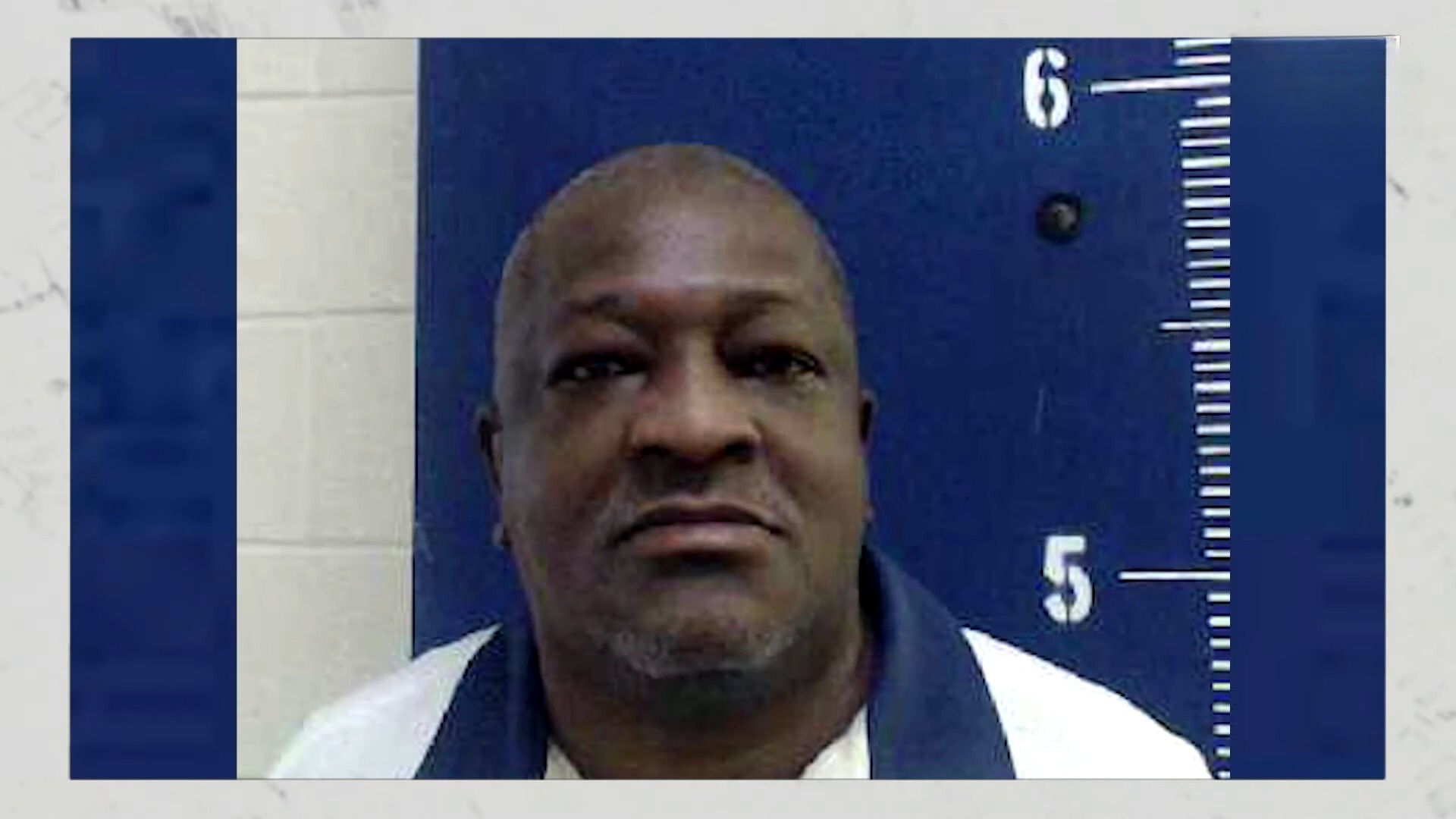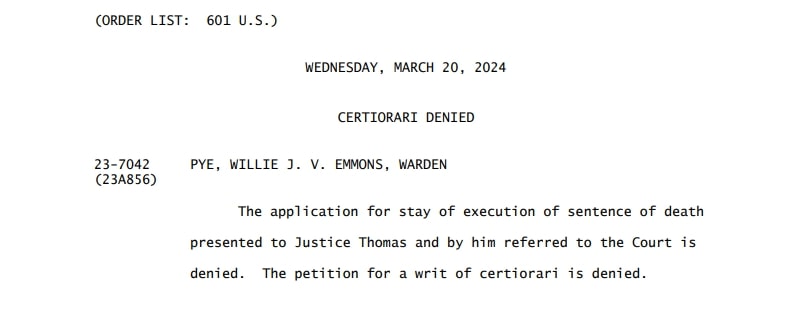GEORGIA – On Wednesday, the state of Georgia carried out the execution of Willie Pye, a man on death row found guilty of murdering Alicia Lynn Yarbrough in 1993.
Executed by lethal injection at 11:03 p.m. in a Jackson prison, located approximately 50 miles south of Atlanta, as announced by the Georgia Department of Corrections in a press release, Pye refrained from issuing a last statement, as per the announcement.
Pye, aged 59, faced execution following the rejection of his ultimate legal challenges by the US Supreme Court late on Wednesday. Pye and his legal team had previously submitted requests for clemency and various legal documents, arguing against his execution on the grounds of an intellectual disability, a difficult childhood, and the ineffectiveness of his legal representation.
January 1997: The Louisiana State Penitentiary’s execution chamber utilized this gurney for lethal injections. (Image courtesy of Shepard Sherbell/Corbis via Getty Images) RELATED ARTICLE Opinion: Witnessing an execution led to regret, but now my perspective has shifted.
This event marks the first execution in Georgia since January 2020, as noted by the Death Penalty Information Center, a non-profit organization. The pause in executions was attributed to the Covid-19 pandemic by the American Bar Association.
In 1996, Pye was convicted for the murder of Yarbrough, alongside charges of kidnapping causing bodily harm, armed theft, burglary, and rape, stemming from a tumultuous romantic relationship with the victim, as indicated by court documents.
Leading up to the execution, a series of urgent legal appeals were made, a common scenario in capital punishment cases, including two appeals to the US Supreme Court, which were eventually dismissed.
In one appeal, Pye contended that his execution should be halted due to a pandemic-related agreement between the Georgia Attorney General’s Office and lawyers for the defense, which temporarily suspended executions in the state until certain criteria were met.
His legal team argued that excluding him from this agreement unfairly discriminated against him, breaching the 14th Amendment’s equal protection and due process clauses. However, the state contested Pye’s appeal, pointing to a state court’s finding that he was not a party to the agreement.
Pye’s second appeal was based on his claim of having an intellectual disability, arguing that executing someone with such a disability is unconstitutional. Yet, Georgia’s standard requires proof of intellectual disability beyond a reasonable doubt—a threshold Pye’s lawyers deemed excessively stringent and unconstitutional.
The Supreme Court chose not to stop Pye’s execution without providing an explanation, a common practice in emergency appeals, with no dissenting opinions noted.
Table of Contents
ToggleThe Murder of Alicia Lynn Yarbrough
Willie James Pye was convicted of murder & other crimes in 1993 killing of Alicia Lynn Yarbrough. He’s set to be executed Wed. night. 75 men & 1 woman have been executed in Georgia since 1976. If executed, Pye will be 54th inmate put to death by lethal injection. (1/2) pic.twitter.com/627efSrhBQ
— Cody Alcorn (@CodyAlcorn) March 18, 2024
Pye and two associates planned to rob a man who was living with Yarbrough, driven by Pye’s anger towards the man for signing the birth certificate of a child Pye claimed as his. Prior to the crime, Pye acquired a .22 caliber pistol, and the trio, disguised with ski masks, approached the man’s residence, finding Yarbrough alone with the baby.
After forcibly entering the home and holding Yarbrough at gunpoint, Pye and his accomplices robbed her of a ring and necklace, then kidnapped her to a motel where they raped her. Later, they took Yarbrough to a secluded dirt road, where Pye commanded her to lie face down before shooting her three times, as detailed in court documents.
One of Pye’s associates later confessed and provided testimony against him, with DNA evidence from the victim’s body matching Pye.
The jury in Pye’s case recommended the death penalty, leading to his sentence of death along with three life sentences plus 20 years, according to the Georgia Attorney General’s Office.
Both of Pye’s accomplices are currently serving life sentences for their involvement in Yarbrough’s murder, as per records from the Georgia Department of Corrections.
Inmate Argued Trial Lawyer ‘Abandoned His Post’
Pye’s petition for clemency argued for his sentence to be reduced to life imprisonment, highlighting the ineffectiveness of his trial attorney, who passed away in 2000.
Three jurors from Pye’s trial expressed opposition to his execution, citing factors about his background that his public defender, described as overwhelmed and ineffective in the clemency petition, failed to present.
“three of Willie Pye’s jurors are now opposed to his execution, citing factors in the inmate’s background that were not presented by what his clemency petition says was an overworked and ineffective public defender.” https://t.co/7ceXmYv5w0
— Rᴏʙᴇʀᴛ L. Tsᴀɪ (@robertltsai) March 20, 2024
Despite these arguments, the state parole board denied clemency after a meeting on Tuesday, stating that it had “thoroughly considered all of the facts and circumstances of the case” in its decision, as mentioned in a press release.
At the time, Pye’s attorney was single-handedly managing all indigent defense services in Spalding County, Georgia, under a lump-sum contract, the petition noted. With only one other attorney and an investigator, he was juggling hundreds of felony cases alongside his private practice, including representing clients in four other capital cases simultaneously. This workload led to the attorney “effectively abandoning his post.”
Source: CNN










